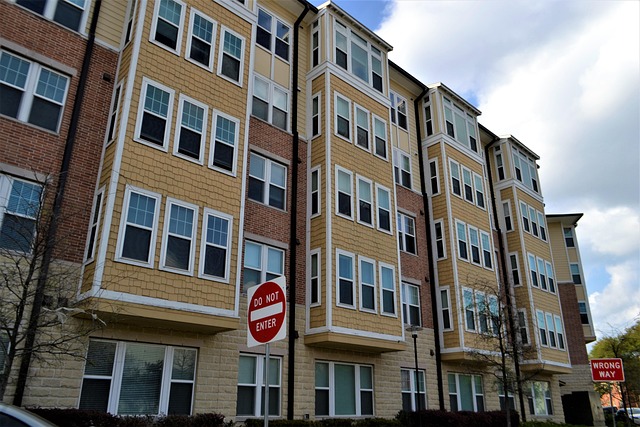Criminal background and rental history checks are indispensable tools for landlords to ensure tenant safety and secure properties. These in-depth assessments go beyond credit scores, examining criminal records, warrants, eviction histories, and responsibilities like timely rent payments and maintenance. By using these checks, landlords can mitigate risks, build trust, and foster mutually beneficial relationships, while also complying with legal requirements and maintaining a fair and ethical renting environment. Rental history checks play a vital role in confirming tenants' identities, addresses, employment, and references, enabling landlords to make informed decisions.
In today’s digital era, understanding the significance of criminal background checks for tenants is paramount for landlords. This comprehensive guide delves into essential aspects of tenant screening, including what criminal background checks entail and their crucial role in evaluating rental history. We explore why these checks are vital for maintaining safe and compliant rental properties, while also addressing legal implications, privacy concerns, and best practices for effective screening processes.
- What are Criminal Background Checks?
- The Role of Rental History Checks in Tenant Screening
- Why Are Criminal Background Checks Essential for Landlords?
- Understanding the Legal Implications and Compliance
- Impact on Tenants' Rights and Privacy Concerns
- Implementing Effective Screening Processes and Best Practices
What are Criminal Background Checks?

Criminal background checks, also known as rental history checks, are a crucial process in the tenant screening process. They involve verifying a potential tenant’s criminal record to ensure they don’t pose a risk to the property or other tenants. This comprehensive check goes beyond a simple credit score, delving into the individual’s past to uncover any relevant criminal activities, outstanding warrants, or previous eviction records.
By conducting these checks, landlords gain valuable insights into a tenant’s reliability and responsibility. It helps create a safer living environment, protects property investments, and mitigates potential risks associated with renting to individuals with a history of criminal behavior. As such, it’s an essential tool in the modern rental market, ensuring both peace of mind for property owners and a secure living space for tenants.
The Role of Rental History Checks in Tenant Screening

Rental history checks are a critical component of tenant screening, providing landlords with valuable insights into a prospective tenant’s past housing experiences. By examining an applicant’s rental history, landlords can gain a better understanding of their reliability as tenants. This includes assessing factors such as timely rent payments, maintenance responsibilities, and the length of previous stays, all of which contribute to evaluating their potential for responsible tenancy.
Moreover, these checks help uncover any red flags or negative patterns in a tenant’s rental record. Information like evictions, late payments, or damage to properties can be revealing, allowing landlords to make informed decisions. Rental history checks serve as a critical tool in mitigating risks and ensuring that both the landlord and the tenant establish a mutually beneficial relationship based on trust and accountability.
Why Are Criminal Background Checks Essential for Landlords?

Criminal background checks play a pivotal role in safeguarding landlords and ensuring a safe living environment for their properties. These checks are essential tools to evaluate potential risks associated with tenants, as they provide valuable insights into an individual’s past behaviors and legal history. By conducting thorough rental history checks, landlords can make informed decisions about who they rent to, minimizing the chances of tenant-related issues like property damage, non-payment of rent, or even criminal activities within their premises.
In today’s digital era, where a simple online search can uncover a wealth of information, background checks offer a comprehensive view beyond what is presented on paper. They help landlords identify red flags that might be missed through traditional means, such as credit checks alone. This proactive approach not only protects landlord investments but also fosters a sense of security for the entire community, making it a crucial step in the tenant screening process.
Understanding the Legal Implications and Compliance

Criminal background checks play a pivotal role in ensuring safe and responsible renting practices. They are not merely a formality but a critical component of rental history checks, offering landlords invaluable insights into potential tenants’ past behaviors. These checks help uncover any criminal records, allowing property owners to make informed decisions about who they trust with their valuable assets.
Legally, conducting thorough background screenings is essential to comply with regulations and avoid future disputes. Many jurisdictions mandate specific procedures for rental applications, emphasizing the need for landlords to verify tenant information accurately. By implementing robust criminal background checks, landlords can safeguard themselves from legal repercussions and ensure a harmonious relationship with their tenants, fostering trust and security within their properties.
Impact on Tenants' Rights and Privacy Concerns

The implementation of criminal background checks, or rental history checks, for tenants is a double-edged sword that impacts both their rights and privacy. On one hand, landlords and property managers must ensure the safety and security of their properties and residents. Conducting thorough checks can help identify potential risks associated with certain individuals, allowing them to make informed decisions about tenant selection. This process is particularly crucial when dealing with shared living spaces where the actions of one tenant can significantly affect others.
However, these checks also raise significant privacy concerns. Tenants have a reasonable expectation of privacy in their personal lives and rental history. The invasion of this privacy through extensive background inquiries can be seen as an intrusion, especially if not conducted responsibly or for irrelevant purposes. Balancing the need for safety with respect for tenant rights is essential to maintaining a fair and ethical renting environment.
Implementing Effective Screening Processes and Best Practices

Implementing effective screening processes is paramount in ensuring safe and responsible renting practices. Landlords should go beyond surface-level information and delve into comprehensive criminal background checks, including rental history verifications. These checks provide a deeper understanding of potential tenants’ past behaviors, helping to identify any red flags or recurring issues that might indicate future problems.
Best practices involve verifying not only the absence of serious crimes but also assessing the nature and timing of any offenses. A tenant with a minor conviction years ago may present a different risk profile than someone with recent involvement in severe criminal activities. Moreover, checking rental history allows landlords to confirm previous addresses, employment details, and references, offering a holistic view of a candidate’s reliability and responsibility.






